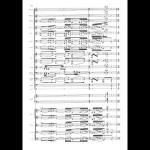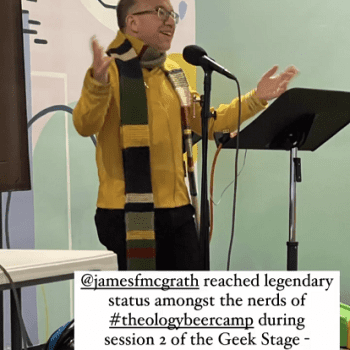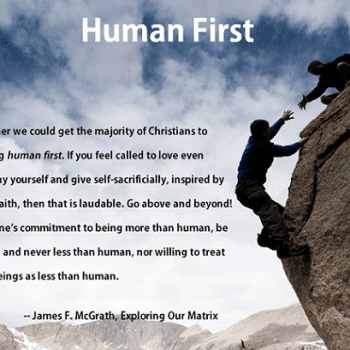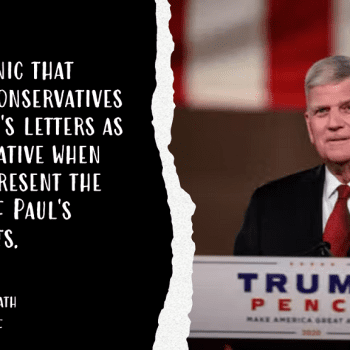People like me who identify themselves as liberal Christians often get asked, “Can you explain the basics of liberal Christianity to me?” I have done so from time to time in the past and thought it was about time to answer the question again.
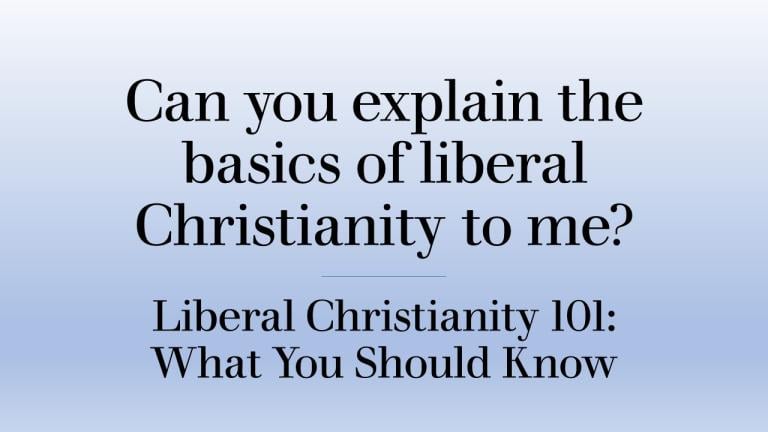 One of the first questions that is sometimes in mind even if not articulated is whether there is any difference between liberal Christianity and progressive Christianity. The short answer is not necessarily, but sometimes. As in politics, so too in theology and religion, liberal and progressive are essentially synonyms. The classic meaning of liberal Christianity is Christianity that is open to new information from the natural sciences, philosophy, and other fields. If you know the history of Christianity, then you may be thinking, “Isn’t that just Christianity as it has always been since the very beginning?” The answer is yes, but since the Enlightenment, with its effort to push human understanding of the cosmos to new heights and depths, and its critical examination of the Bible calling into question the historicity of many stories contained in it, there has been, to a greater extent than ever before, a bifurcation between those who are open to having Christianity take new forms and mean new things in light of new evidence and arguments, and those who resist and at least pretend to remain unchanged (although it is important to highlight that it is indeed pretending – fundamentalism is not traditional Christianity but a relatively recent innovation, a modern reactionary movement against liberal Christianity).
One of the first questions that is sometimes in mind even if not articulated is whether there is any difference between liberal Christianity and progressive Christianity. The short answer is not necessarily, but sometimes. As in politics, so too in theology and religion, liberal and progressive are essentially synonyms. The classic meaning of liberal Christianity is Christianity that is open to new information from the natural sciences, philosophy, and other fields. If you know the history of Christianity, then you may be thinking, “Isn’t that just Christianity as it has always been since the very beginning?” The answer is yes, but since the Enlightenment, with its effort to push human understanding of the cosmos to new heights and depths, and its critical examination of the Bible calling into question the historicity of many stories contained in it, there has been, to a greater extent than ever before, a bifurcation between those who are open to having Christianity take new forms and mean new things in light of new evidence and arguments, and those who resist and at least pretend to remain unchanged (although it is important to highlight that it is indeed pretending – fundamentalism is not traditional Christianity but a relatively recent innovation, a modern reactionary movement against liberal Christianity).
In short, if someone (whether you or someone else) is a Christian who is accepts what those with expertise in physics, biology, history, and psychology conclude, and is willing to accept when historical study shows things in the Bible are unlikely to be historical, then they (or you) are a liberal Christian.
More recent developments in human thought have exposed the limitations of the approach of the Enlightenment era, with its quest for certainty and for objective facts unaffected by human (mis)interpretation and error. Some prefer “progressive” as a way of indicating they accept this postmodern critique of the Enlightenment and thus have moved beyond the Liberal Christianity of that era. However, since Liberal Christianity has never been one thing, and is inherently open to changing, learning, and growing, there is no reason that the term “liberal” cannot apply perfectly well to this latest expression of that tradition.
There is a wonderful discussion in Brian McLaren’s book Do I Stay Christian? about being more committed to reality than to one’s own understanding of reality. McLaren mentions that Christians have sometimes had a fraught relationship with the available evidence and have resisted following it where it points.
I was struck while listening that what I mean by God is Reality with a “capital R.” When one adopts that view, there is no inherent tension between faith and inquiry. When Reality itself is your ultimate concern, the quest to understand reality in any aspect is part of the quest to understand what little we can about Reality itself as an all-encompassing whole.
McLaren emphasizes that loyalty to God is loyalty to reality and vice versa. His book also contains a number of beautiful prayers aimed at recognizing and seeking to overcome our biases.
Liberal Christianity at its core is Reality-Based Christianity, an approach that recognizes that ancient humans did not know everything, nor do we, but sometimes we have more or better information than they did and when that happens our views must change. The Liberal Protestant theologian Paul Tillich famously defined God as Being itself, rather than being merely a being, one among the many found within the universe. Being itself, Reality itself, is that which is, including at its most transcendent and all-encompassing level. If you understand God to be Reality, then seeking to understand Reality can never be at odds with seeking God, for the two quests become one and the same. Understanding our physical reality, or understanding our human history, is just a small piece of that. The bigger picture, Reality with a capital R, exceeds our capacity to grasp. As Tillich and other theologians down the ages have emphasized, if we can grasp it, it isn’t God. While there have been plenty of instances of pride and arrogance in the history of Liberal Christianity (as in all of Christianity’s other expressions), the approach of openness and seeking to improve our understanding should lead us to be humble and always open to learning and growing. That is the heart of what it means to be liberal, after all, and for Liberal Christians like myself, it is the heart of what it means to be Christian.
See some of what other Patheos Progressive Christian bloggers have been saying lately:
The 8 Points of Progressive Christianity Have Changed. Here’s What They Are Now.




